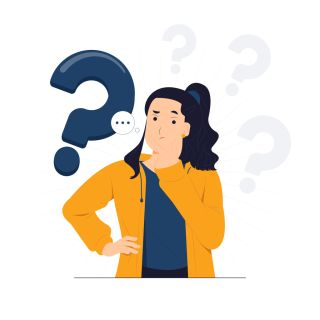Confidence
What Drives Curiosity?
Research explores the relationship between confidence and wanting to know.
Posted October 3, 2023 Reviewed by Michelle Quirk
Key points
- Curiosity is influenced by the belief you should know something and whether you actually know it.
- Studies suggest that being confident and wrong drives curiosity.
- Curiosity judgments are more sensitive to whether you are actually correct than confidence judgments.

Curiosity is the desire to develop a particular level of knowledge or skill. There is both “state” and “trait” curiosity. State curiosity is a particular desire to know something at a particular time. Trait curiosity is the characteristic of an individual that they are generally interested in developing new knowledge and skills.
Let’s focus on state curiosity. What would make a person want to know whether a particular piece of information is true? This question was addressed in an interesting paper from 2023 in the Journal of Experimental Psychology: General by Janet Metcalfe, Matti Vuorre, Emily Towner, and Teal Eich.
They suggest that a feeling of curiosity is driven by a combination of people’s confidence that they know something and their uncertainty about whether they are actually correct. On this view, when people don’t know anything about a topic, they are unlikely to be curious about a particular fact. When they think they do or ought to know something, they get more curious. That feeling of curiosity peaks when people feel certain they should know something, but are still unsure of whether they are correct. When they are both certain they know something and certain they are correct, then they have no curiosity at all.
For example, when a new psychology paper comes out in an area that I’m interested in, I have high curiosity, because I believe this is something I should know, but I don’t yet know it. So, I’m quite likely to want to read the paper. In contrast, I’m unlikely to want to read a summary of research I already know well, because I don’t believe that I have anything new to learn from it.
In several studies, the authors had participants answer general knowledge questions. In some studies, participants rated their confidence in whether they knew the answer. Then, they were given feedback about whether they were correct or not. After that, they were asked whether they wanted to see the correct answer. People were most curious about the correct answer when they were incorrect about the response, but were initially confident that they were correct.
Perhaps the most interesting finding of all the studies, though, came from situations in which people were asked how curious they were to know the correct answer without getting feedback. In these studies, there were conditions in which people rated their confidence that they know the correct answer. Then, they were asked for their curiosity to know the actual correct answer.
In some cases, people were highly confident that they knew the correct answer and were correct, and, in other cases, they were highly confident and incorrect. If curiosity were only based on a feeling of confidence, then they should have been equally curious to find out the correct answer regardless of whether their guess was correct or not. In fact, people were more curious when their answer was incorrect than when it was correct.
This finding suggests that the feeling of curiosity must be based on a combination of a person’s feeling that they should know the answer to the question along with some additional sense that they may be missing something. That is, the feeling of curiosity is more sensitive to people’s real uncertainty about whether they are correct than their judgments of confidence.
One practical implication of this work is that if you are trying to teach something to someone, you might not want to start by asking whether they know it. That judgment may be overly confident. Instead, ask them whether they are curious to know more. This judgment of curiosity may incorporate a person’s uncertainty more effectively than their belief in their overall confidence.
References
Metcalfe, J., Vuorre, M., Towner, E., & Eich, T. S. (2023). Curiosity: The effects of feedback and confidence on the desire to know. Journal of Experimental Psychology: General, 152(2), 464–482. https://doi.org/10.1037/xge0001284


